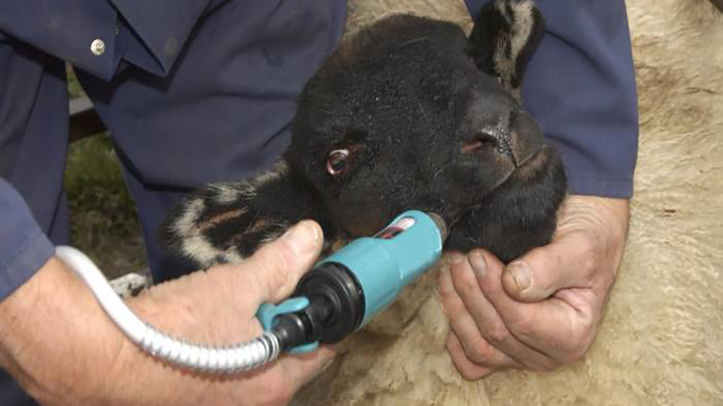Following a small number of reports of overdosing, the Sustainable Control of Parasites in Sheep (SCOPS) group is urging sheep farmers to take care when using wormers and flukicides containing the active ingredient closantel.
Giving an animal too much closantel can cause permanent blindness, which has happened on some sheep farms in recent months.
Speaking on behalf of the SCOPS Steering Group, independent sheep adviser Lesley Stubbings said: “The safe use of animal medicines relies on all the instructions for use being followed as per the label – and we know a key issue is ensuring animals receive the correct dose. As with all products, animals need to be dosed with closantel according to their weight.”
Current industry advice is to dose with a wormer or flukicide to the heaviest in the group – advice that needs to be followed carefully given the closantel risk.
Ms Stubbings continued: “Because of the risks posed by overdosing with closantel, SCOPS urges sheep farmers to split a group if the weight variation is large, grouping sheep into weight bands and altering the dose rate accordingly. That is safer than dosing to the heaviest animal and administering too much closantel to small animals.”
SCOPS also encourages producers to report any adverse reaction to closantel in treated animals to the Veterinary Medicines Directorate.
There is a full list of products that can used to treat internal sheep parasites on the SCOPS website, which highlights the active for each. Closantel is an active in Supaverm and Flukiver, Solantel, Closamectin and Closiver. The website also provides links to the VMD product database and adverse reactions reporting process.
Ms Stubbings concluded: “Closantel is an important active in the control of internal parasites. This isn’t a recommendation to avoid the product – just a reminder of the risks of not weighing animals and giving them too much.”


